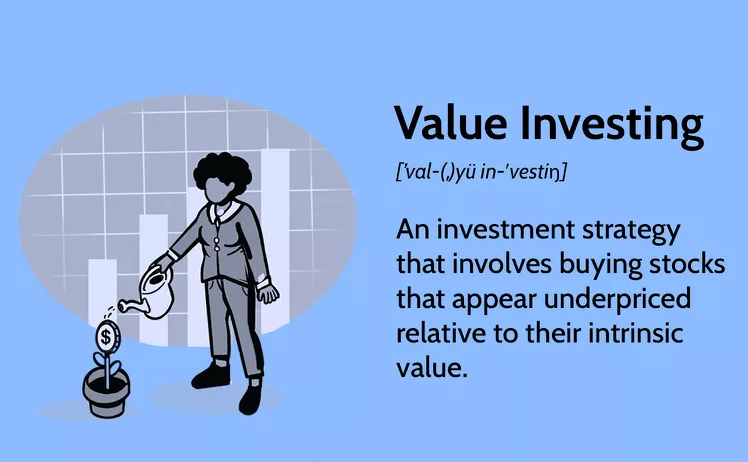What Is Value Investing?
Value investing is an investment strategy that involves picking stocks that appear to be trading for less than their intrinsic or book value. Value investors actively ferret out stocks they think the stock market is underestimating. They believe the market overreacts to good and bad news, resulting in stock price movements that do not correspond to a company's long-term fundamentals. The overreaction offers an opportunity to profit by purchasing stocks at discounted prices.
Warren Buffett is probably the best-known value investor today, but there are many others, including Benjamin Graham (Buffett's professor and mentor), David Dodd, Charlie Munger (Buffet's business partner), Christopher Browne (another Graham student), and billionaire hedge-fund manager, Seth Klarman.
KEY TAKEAWAYS
- Value investing is an investment strategy that involves picking stocks that appear to be trading for less than their intrinsic or book value.
- Value investors actively ferret out stocks they think the stock market is underestimating.
- Value investors use financial analysis, don't follow the herd, and are long-term investors of quality companies.

Understanding Value Investing
- The basic concept behind everyday value investing is straightforward: If you know the true value of something, you can save a lot of money when you buy it. Most folks would agree that whether you buy a new TV on sale, or at full price, you’re getting the same TV with the same screen size and picture quality.
- Stock prices work in a similar manner, meaning a company’s share price can change even when the company’s valuation has remained the same. This means, strictly speaking, there is no such thing as a true, or intrinsic, value of the stock of a given company. But there are relative values.
- Market participants can buy or sell shares without being tethered to an objective price figure. Therefore, stocks, like TVs, go through periods of higher and lower demand leading to price fluctuations. If the company's fundamentals are the same, and its future opportunities are unchanged, then the value of the shares is largely the same even though the price differs.
Value Investing Strategies
The key to buying an undervalued stock is to thoroughly research the company and make common-sense decisions. Value investor Christopher H. Browne recommends asking if a company is likely to increase its revenue via the following methods:
- Raising prices on products
- Increasing sales figures
Decreasing expenses - Selling off or closing down unprofitable
Browne also suggests studying a company's competitors to evaluate its future growth prospects. But the answers to all of these questions tend to be speculative, without any real supportive numerical data. Simply put, no quantitative software programs are yet available to help achieve these answers, making value stock investing somewhat of a grand guessing game. For this reason, Warren Buffett recommends investing only in industries you have personally worked in or whose consumer goods you are familiar with, like cars, clothes, appliances, and food.
One thing investors can do is choose the stocks of companies that sell high-demand products and services. While it's difficult to predict when innovative new products will capture market share, it's easy to gauge how long a company has been in business and study how it has adapted to challenges over time.
Insider Buying and Selling
For our purposes, insiders are the company’s senior managers and directors, plus any shareholders who own at least 10% of the company’s stock.
A company’s managers and directors have unique knowledge about the companies they run, so if they are purchasing its stock, it’s reasonable to assume that the company’s prospects look favorable.
Likewise, investors who own at least 10% of a company’s stock wouldn’t have bought so much if they didn’t see profit potential. Conversely, a stock sale by an insider doesn’t necessarily point to bad news about the company’s anticipated performance—the insider might simply need cash for any number of personal reasons. Nonetheless, if mass sell-offs are occurring by insiders, such a situation may warrant further in-depth analysis of the reason behind the sale.


Hi, this is a comment.
To get started with moderating, editing, and deleting comments, please visit the Comments screen in the dashboard.
Commenter avatars come from Gravatar.